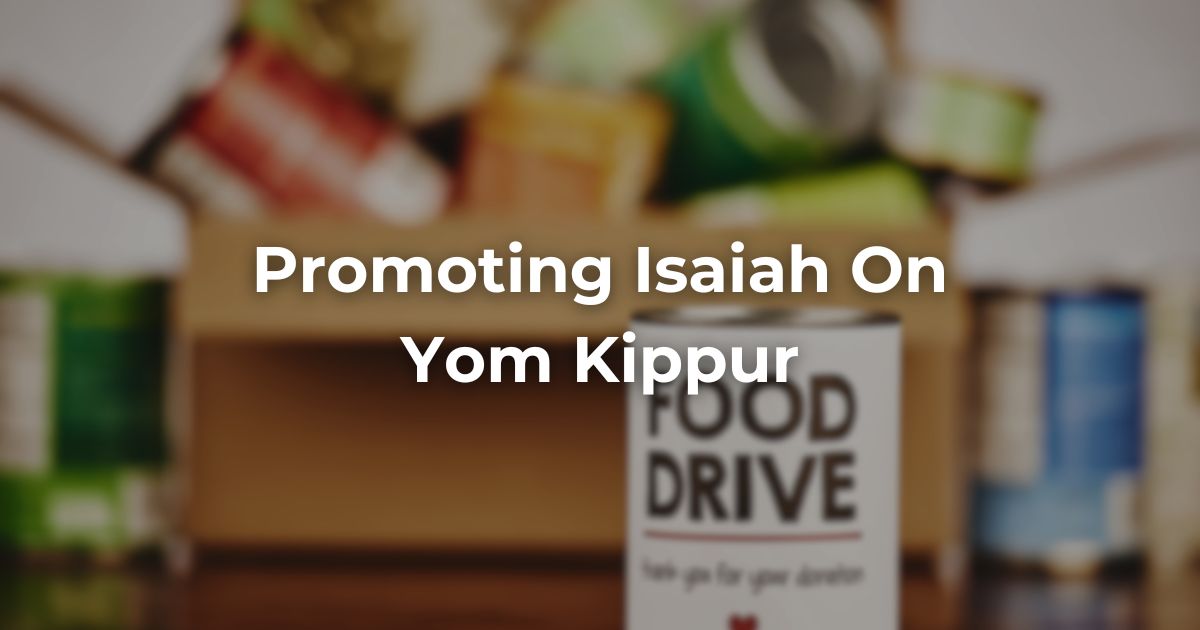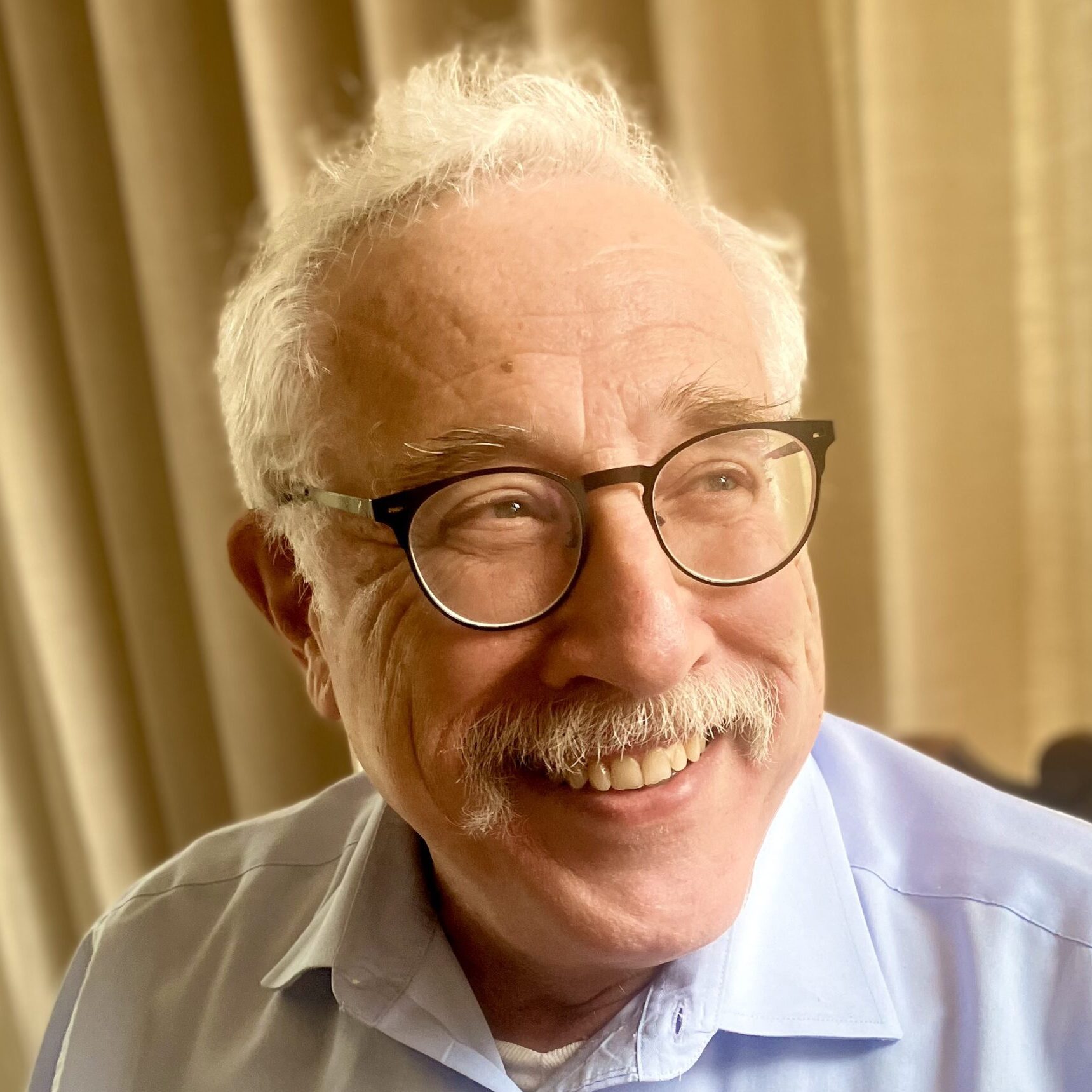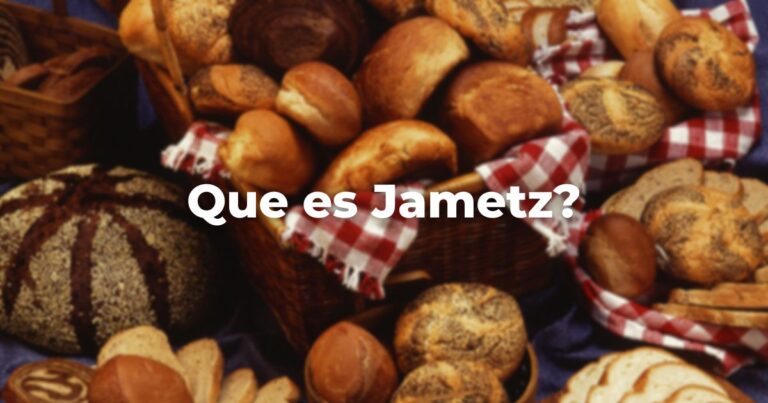This piece is part of Exploring Judaism’s 5785 High Holiday Reader. Download the whole reader here.
“It is to share your food with the hungry.” (Isaiah 57:7)
Sung by a chorus of poor orphan boys, the lyrics “Food, Glorious Food” remain unforgettable. The 1960 Broadway adaptation of Charles Dickens’s 1838 novel Oliver Twist opens as the hungry boys line up for dinner. Served nothing but a diet of mere gruel, they take solace in imagining a richer menu.
There’s nothing to stop us from getting a thrill,
When we all close our eyes and imagine,
Food, Glorious Food!
Hunger is devastating and cruel. Those who persist on a limited or insufficient diet can literally think of nothing else but “from where will my next meal come?”
Hungry children cannot learn, and undernourished infants will not develop healthy bodies. Parents starve themselves in order to feed their young. We know that persistent hunger shortens lives. And yet, despite the production in America of more than sufficient amounts of nutritious food for all, hunger persists. Hunger, unlike so many of our major social challenges, is an easily remediable problem.
Food plays a central role in Jewish life. We gather with family and friends in our homes for festive Shabbat and Holy Day meals. Joyous life cycle events conclude with a Seudat Mitzvah, a celebratory meal, and mourners return home to a Seudat Havra’ah, a meal of consolation. Special foods are designated for virtually every holy day: apples and honey for Rosh Hashanah, blintzes for Shavuot, potato pancakes or jelly donuts for Hanukah. We exchange sweets for Purim and prepare all kinds of unique foods for our Passover Seder.
Yet our Jewish tradition teaches us that those who are without must never be far from our consciousness. At the outset of our Seder ritual we extend an invitation, “Let all who are hungry come and eat.” In response to this call many communities see to it that everyone who desires has a family Seder to attend.
Less well-known traditions include Maot Hittim, flour money, collected so that everyone can afford to buy Matzah. On Purim, people would offer Matanot leEvyonim, offerings for the poor. A pushke, tzedakah Box is available in nearly every Jewish home.
The fast of Yom Kippur demands no special foods, though families create customs for the meal prior to the fast and for breaking it at the end of the day. Among the many explanations for why we fast are to sensitize us that there are those in our midst who experience hunger not just one day, but every day.
However, it is Isaiah’s tirade which calls us to action. We read his words as the Haftarah each Yom Kippur morning. As we gather already engaged in our fast, Isaiah shouts at the top of his lungs that a mere ritual fast is not what God desires. The fast can only be effective when accompanied by acts of social justice: “feed the hungry, clothe the naked, shelter the homeless,” he cries.
Operation Isaiah
In direct response to the prophet Isaiah’s demand, many Conservative synagogues urge their attendees to come to Kol Nidre services bearing bags of non-perishable food to be distributed to local food banks and soup kitchens. By so doing we dramatically begin the new Jewish year placing the Mitzvah of hunger relief at the top of our collective agenda.
There are children in America who go to bed hungry because of a lack of national will. Since fruit and vegetables, meat and fish are readily available in abundance, access to nutritious food must be considered a basic human right. Our symbolic gesture through Operation Isaiah is a demand to eliminate the scourge of hunger. May we see the day when the availability of healthy food is available to all.
Authors
-

Daniel J. Isaak serves as Rabbi Emeritus of Congregation Neveh Shalom in Portland, Oregon, where he was senior rabbi for over 20 years. He is currently chair of the Food Justice Committee of the Rabbinical Assembly Social Justice Commission. For eight years he was engaged on the Board of Directors of the Oregon Food Bank. He is married to Carol, and has four married children and seven delightful grandchildren.
View all posts -

Serving as a central address within the movement, the Social Justice Commission (SJC) works through consensus to evolve a vision of social justice through the lens of Conservative/Masorti Judaism. We strive to educate, advocate, and organize around the issues of today, articulating that acts of social justice are mitzvot.
View all posts https://www.rabbinicalassembly.org/webform/social-justice-committee-mailing-list







